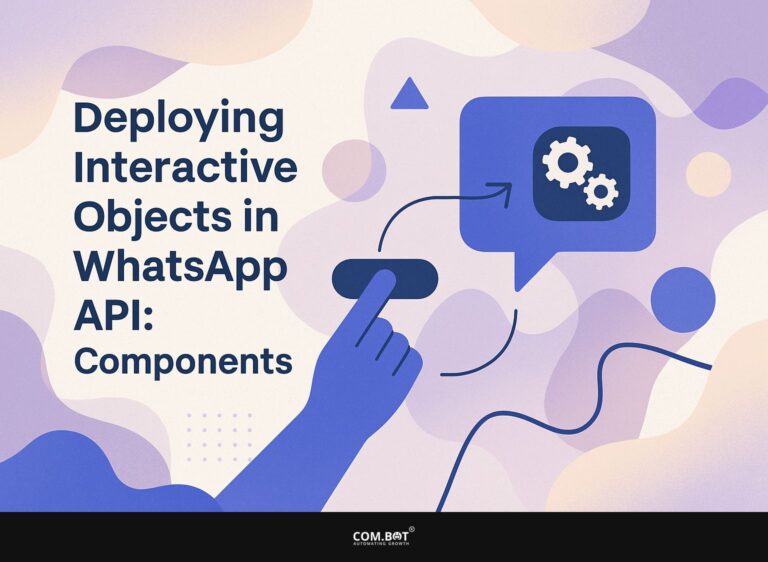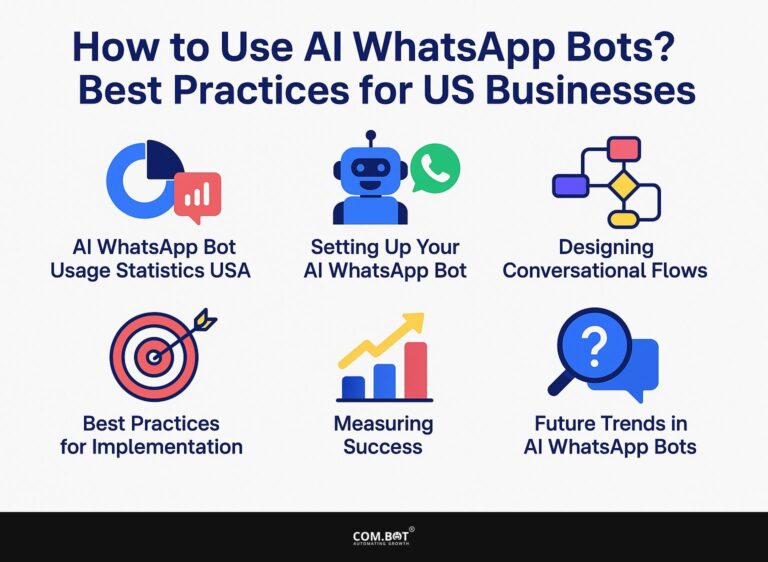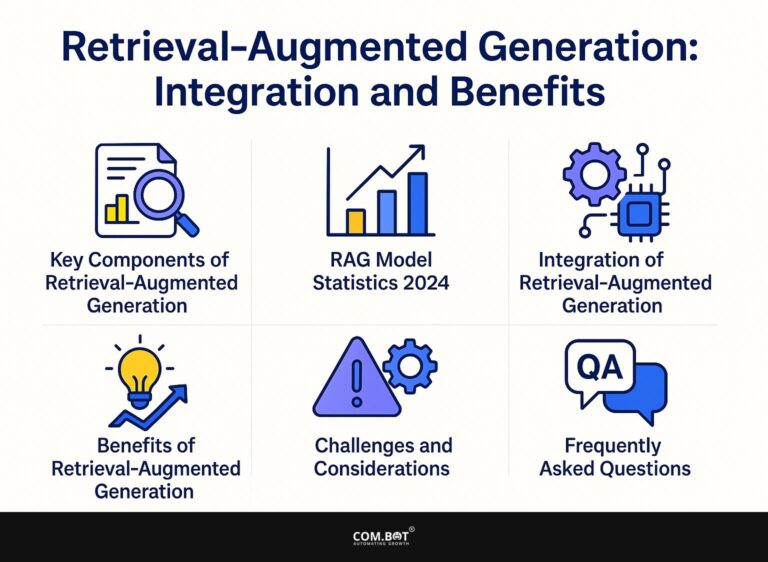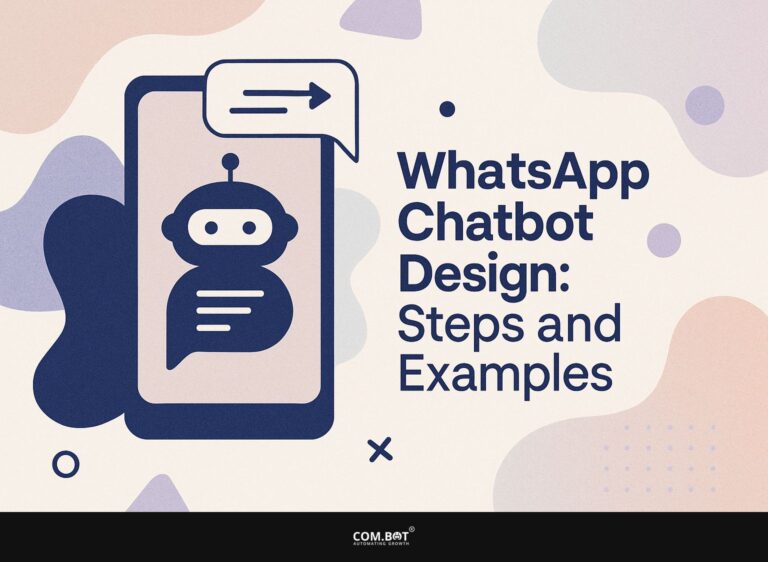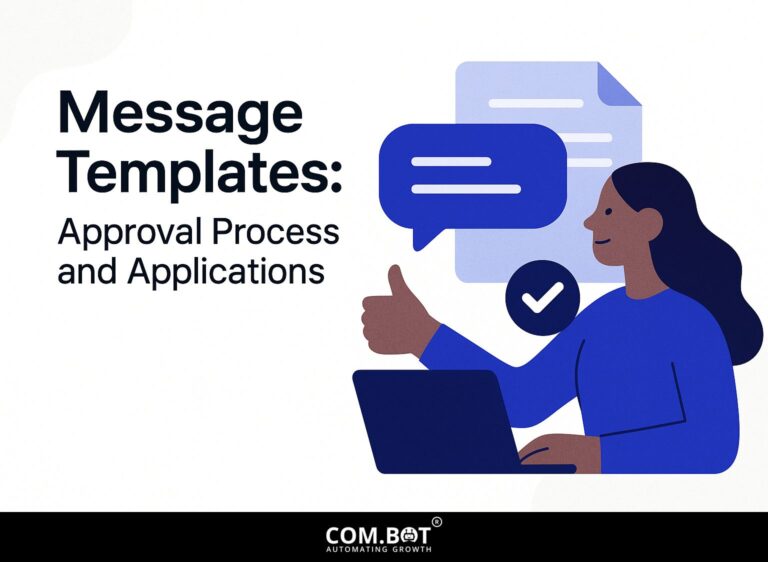WhatsApp Chatbots for Healthcare: Applications and Case Studies
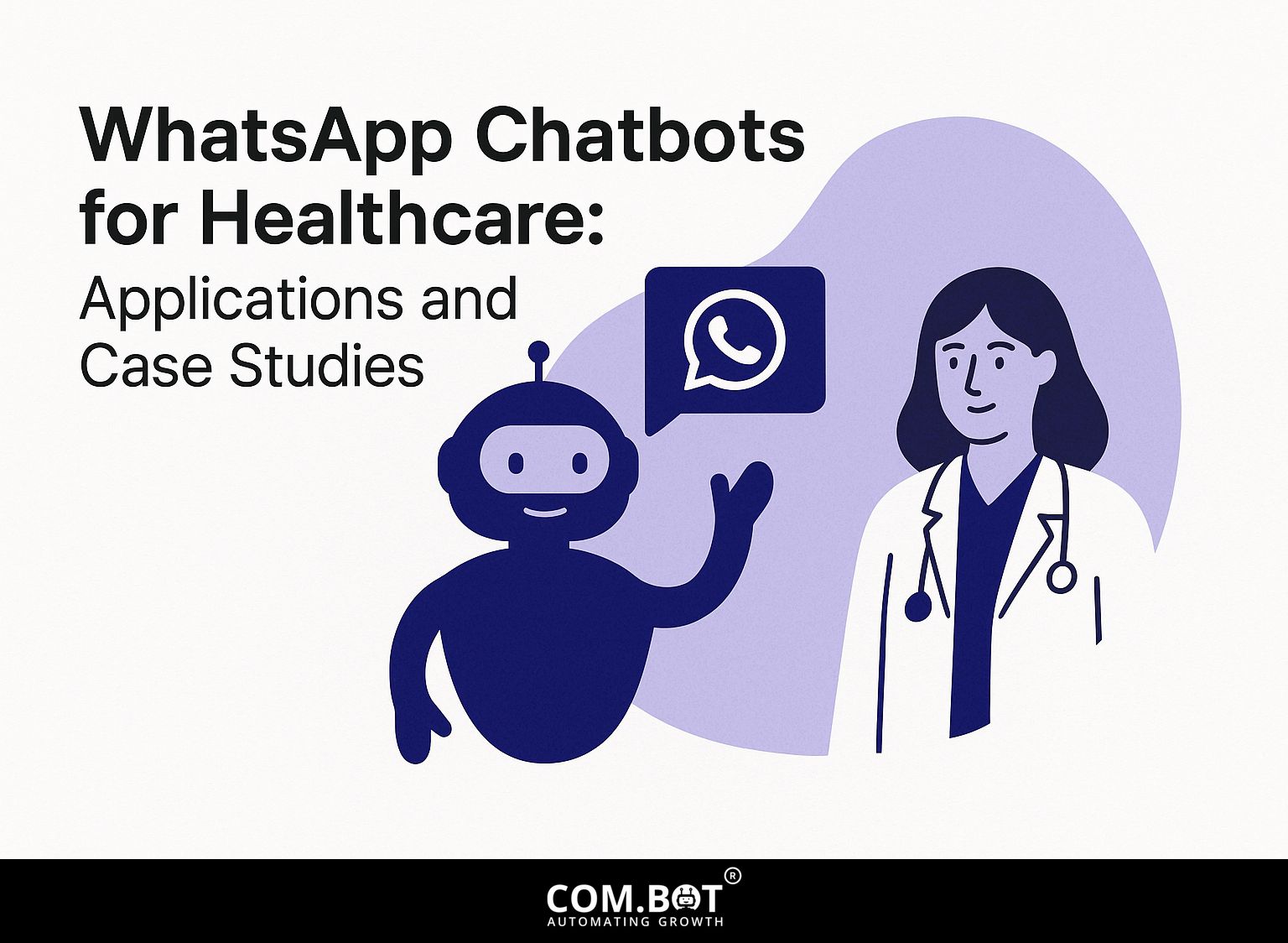
Since COVID-19, WhatsApp chatbots have become essential for healthcare groups, changing how patients communicate on this widely-used messaging service. These assistants simplify communication, improve patient interactions, and help with tasks like scheduling appointments and reminding patients about their medicine. In this article, we’ll look at important uses and real examples of WhatsApp chatbots in healthcare, showing how they can make services easier to reach and run more smoothly.
Key Takeaways:
- WhatsApp chatbots are changing healthcare by helping patients stay involved, schedule appointments, and remember to take their medication.
- Successful implementations of chatbots in telemedicine support and mental health services have demonstrated their effectiveness in providing accessible and cost-effective care.
- Using WhatsApp chatbots in healthcare seems helpful as AI and machine learning advance. These technologies can offer personalized care and improve patient outcomes.
- 1 Healthcare Chatbot Usage Statistics
- 2 Key Applications of WhatsApp Chatbots
- 3 Case Studies of Successful Implementations
- 4 Benefits of Using WhatsApp Chatbots in Healthcare
- 5 Challenges and Limitations
- 6 Future Trends and Innovations
- 7 Frequently Asked Questions
- 7.1 1. What are WhatsApp chatbots and how are they being used in the healthcare industry?
- 7.2 2. What are the applications of WhatsApp chatbots in healthcare?
- 7.3 3. Can WhatsApp chatbots help with mental health support?
- 7.4 4. Are there any successful case studies of WhatsApp chatbots in the healthcare industry?
- 7.5 5. How do WhatsApp chatbots keep patient information private and safe?
- 7.6 6. Can WhatsApp chatbots be used by healthcare professionals for remote patient monitoring?
1. Overview of Chatbots
Chatbots use artificial intelligence and NLP tools to manage interactions, providing patient support at any time, day or night. By adding chatbots to customer service, businesses make their processes more efficient and improve the experience for users.
For instance, platforms like Intercom and Drift enable real-time communication with users, providing instant responses to FAQs or troubleshooting common issues. Tools like the Microsoft Bot Framework let developers create chatbots that recommend choices according to user actions.
Chatbots allow businesses to work more smoothly and make customers happier, all while lowering costs. They play a key role in today’s customer service plans. For an extensive analysis of this trend, our comprehensive study on managing high volume with AI bots offers valuable insights into their scalability and efficiency.
2. Importance in Healthcare
In healthcare, chatbots make processes run smoothly, allowing medical staff to provide quick medical information and improve patient satisfaction.
By automating responses to common inquiries, chatbots significantly reduce wait times and allow staff to focus on critical tasks. A chatbot can handle scheduling appointments, remind patients about their medications, and reply to typical questions, which simplifies tasks.
A good example is the Woebot app, which provides mental health help anytime using chat AI. Using chatbots in patient engagement strategies improves access to services and creates a more responsive care setting, resulting in higher patient satisfaction and improved health results.
Healthcare Chatbot Usage Statistics
Healthcare Chatbot Usage Statistics
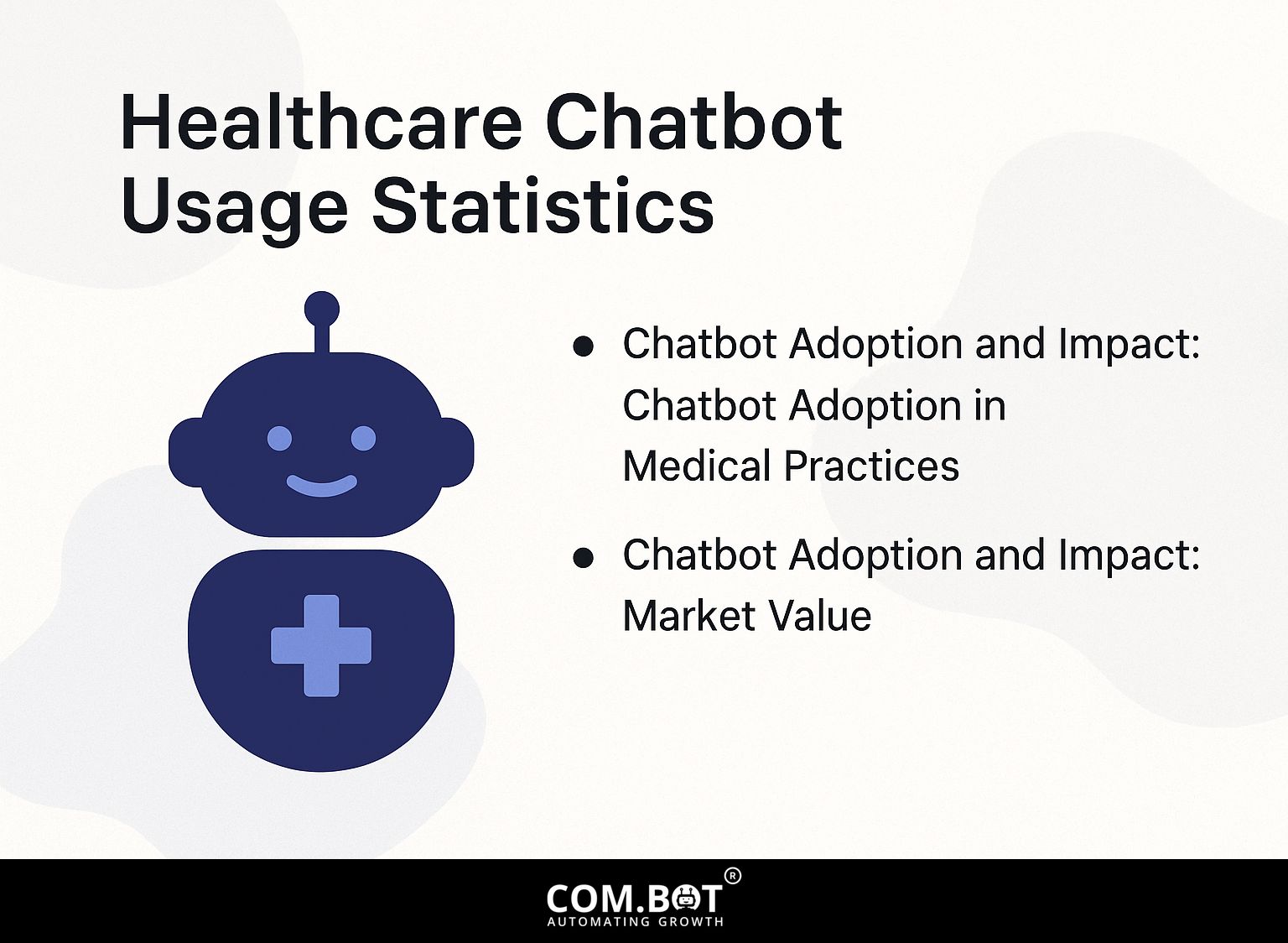
Chatbot Adoption and Impact: Chatbot Adoption in Medical Practices
Chatbot Adoption and Impact: Market Value
Healthcare Chatbot Usage Statistics reveals the current state and potential growth of chatbot adoption in medical practices, highlighting both the benefits and untapped opportunities within the healthcare sector. This data shows a move towards using digital tools in healthcare communication and how patients interact.
Chatbot Adoption and Impact shows how much chatbots are used in medical offices. Currently, 19% of practices use chatbots This shows a growing awareness of their ability to simplify processes, improve patient interaction, and share information effectively. However, a significant 81% have not adopted chatbots, indicating barriers such as lack of awareness, technological integration challenges, or concerns about patient data security.
- Market Value: The healthcare chatbot market is expected to reach a value of $1 billion by 2025 and projects a remarkable growth to $10 billion within a decade. This quick increase shows the growing need for AI tools that can improve patient care, reduce administrative work, and offer personalized health support.
The current adoption rate of 19% represents early adopters who see the advantages of chatbots in handling routine inquiries, appointment scheduling, and providing patients with immediate access to healthcare information. These practices likely benefit from increased efficiency and patient satisfaction.
The substantial forecasted growth from $1 billion to $10 billion in market value suggests expanding opportunities for developers and healthcare providers to innovate and improve chatbot capabilities. With improvements in technology, combining complex AI and natural language processing might help remove current obstacles, leading to more people using these technologies.
Overall, Healthcare Chatbot Usage Statistics Highlights the possibilities for change in healthcare practices by using chatbots more often. The data points towards a significant shift in the industry, where embracing technology can lead to improved patient care, operational efficiencies, and new business opportunities.
Key Applications of WhatsApp Chatbots
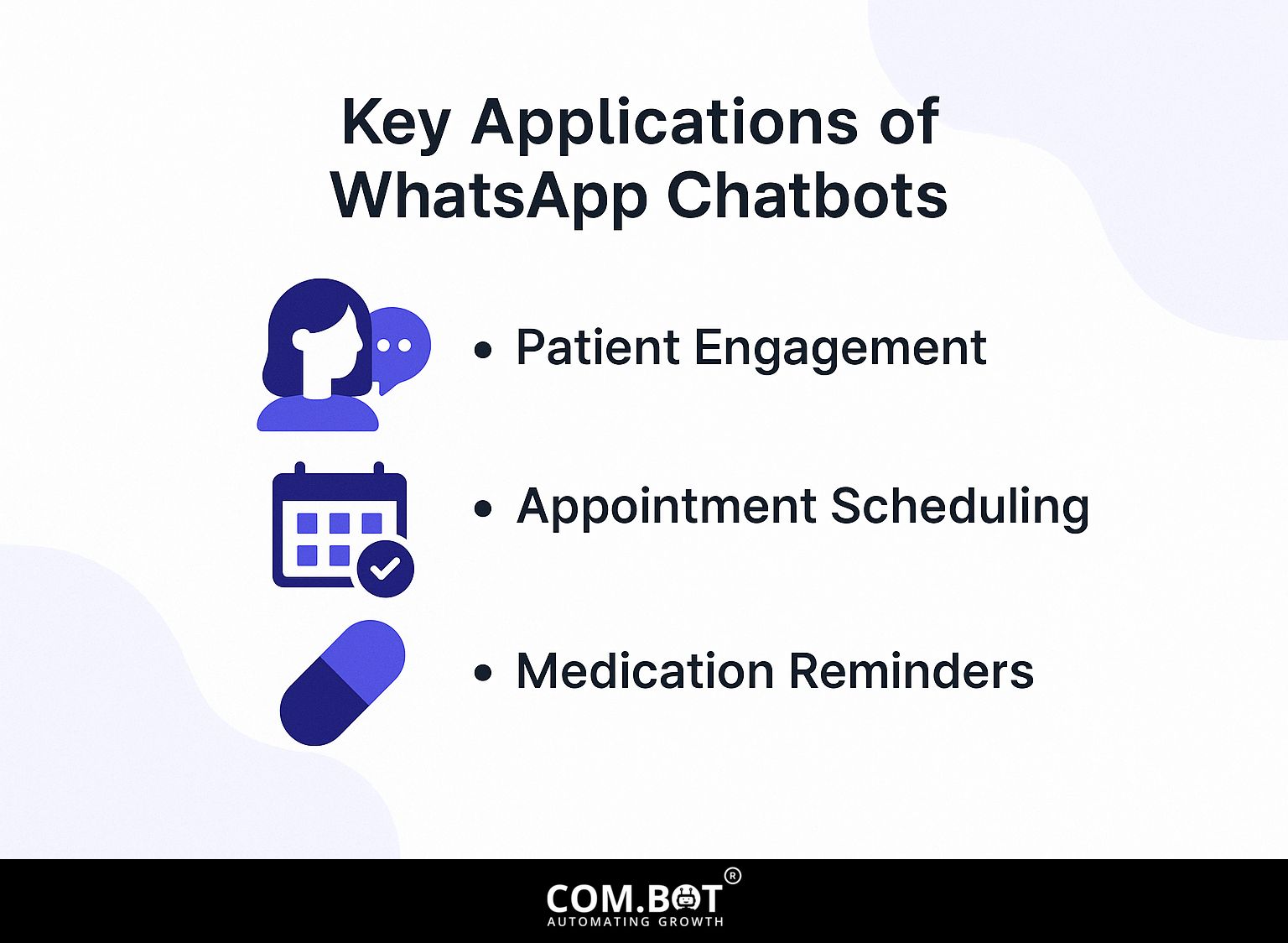
WhatsApp chatbots are very useful in healthcare, improving patient communication and streamlining operations. See also: WhatsApp Chatbot Design: Steps and Examples for a deeper understanding of their implementation.
1. Patient Engagement
WhatsApp chatbots improve user interaction by providing quick replies to frequently asked questions from patients. These chatbots can provide customized conversations, like appointment notices and advice for continued care.
For effective implementation, consider tools like Tars, which allows you to create custom workflows without coding. Alternatively, Yellow.ai offers machine learning capabilities to improve responses over time.
Start by identifying the top 10 frequently asked questions from your patient interactions, then design chatbot responses accordingly.
In just a few hours, you can create a working model that improves your patient’s experience and makes your staff’s tasks easier.
2. Appointment Scheduling
WhatsApp chatbots make it easy for patients to set up and handle their healthcare appointments. For optimal performance, integrate the chatbot with health management systems like King Abdullah bin Abdulaziz’s. Begin by creating automatic replies for frequent questions and scheduling options.
For instance, when a patient types ‘Book an appointment,’ the bot can guide them through available dates and times using a simple flow: first, ask for preferred services, then provide date options based on availability.
Send notifications automatically one day before to help prevent missed appointments. This improves patient engagement and operational efficiency.
3. Medication Reminders
Chatbots can regularly notify patients about their medication, helping them follow their schedules and get healthier.
Research shows that using chatbots to remind people to take their medicine can reduce missed doses by 50%. A study with more than 1,000 patients showed that 80% of those who got messages from a chatbot stuck to their schedule, while only 60% of those who did not get messages did the same.
Tools like Medisafe and MyTherapy are popular options, offering user-friendly interfaces and customizable alerts. By changing the timing and frequency of reminders to suit individual needs, these chatbots offer improved help for patients managing long-term health conditions.
Case Studies of Successful Implementations
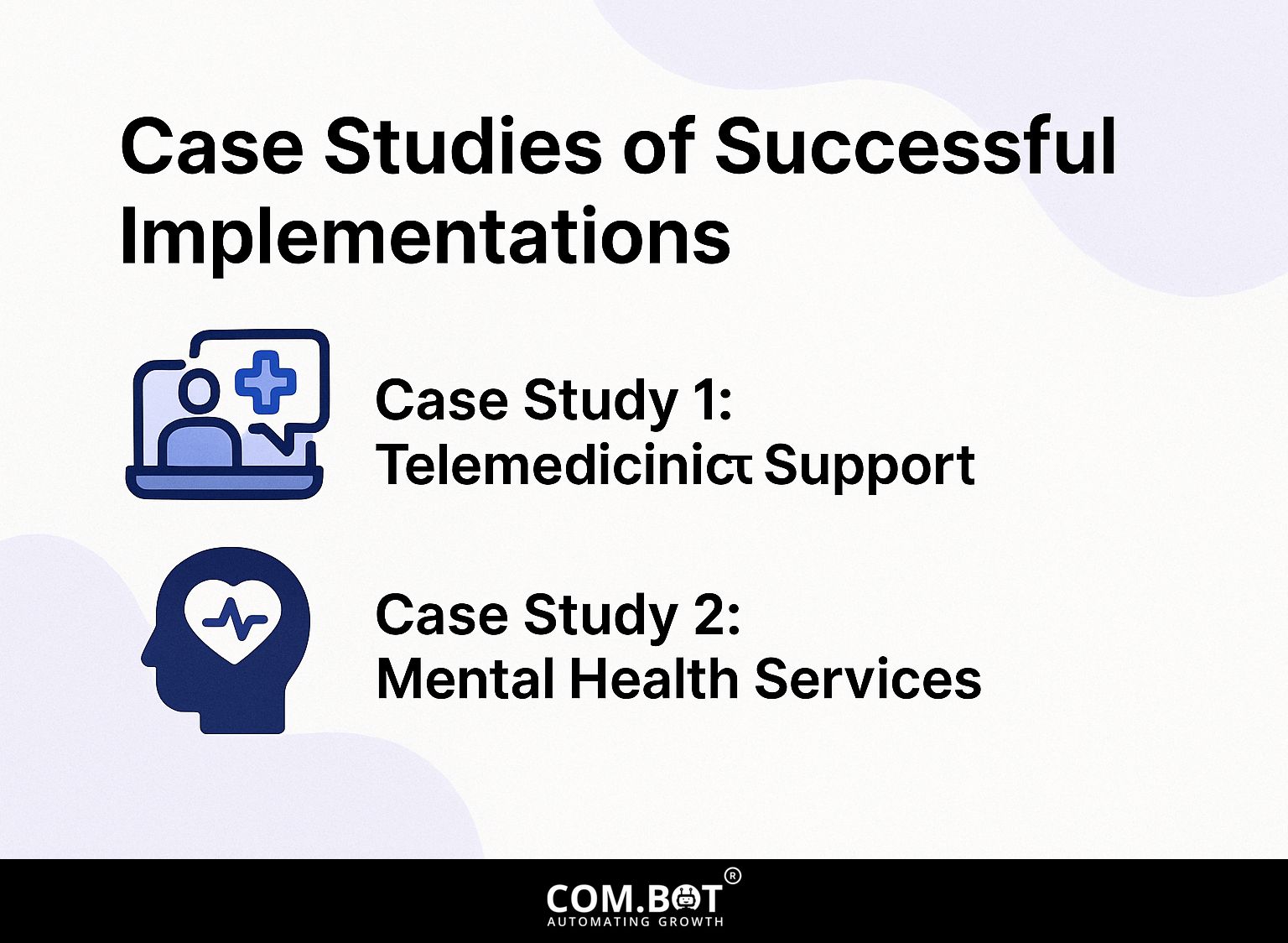
Many healthcare groups have effectively employed WhatsApp chatbots, demonstrating their value in real-life settings. For those interested in exploring successful large-scale applications, our detailed examination of large WhatsApp campaigns showcases examples and their impact.
Case Study 1: Telemedicine Support
The International Medical Center implemented a WhatsApp chatbot for telemedicine support, resulting in a 30% increase in online consultations.
Utilizing the WhatsApp Business API, the center configured the chatbot to handle appointment scheduling, provide medical advice, and answer FAQs.
Patient feedback highlighted a 90% satisfaction rate with response times and ease of use. Tools like Twilio can improve this setup by providing extra analytics to monitor how patients are interacting.
The integration process lasted about two weeks. During this time, we made continuous tweaks based on patient interactions to improve the chatbot’s performance, providing a smooth experience for users.
Case Study 2: Mental Health Services
By utilizing AI chatbots, a mental health service provider improved patient engagement by 25%, facilitating more effective communication.
The implementation of chatbots allowed patients to interact anonymously at any time, easing the stigma often associated with mental health discussions.
Challenges included ensuring the bots understood complex emotional language and meeting privacy regulations. To address these problems, the provider used Natural Language Processing tools like Google’s Dialogflow to better grasp user inputs.
Integrating data encryption tools fortified patient confidentiality. Patients felt more comfortable talking about their experiences, creating a safe space for getting help.
Benefits of Using WhatsApp Chatbots in Healthcare
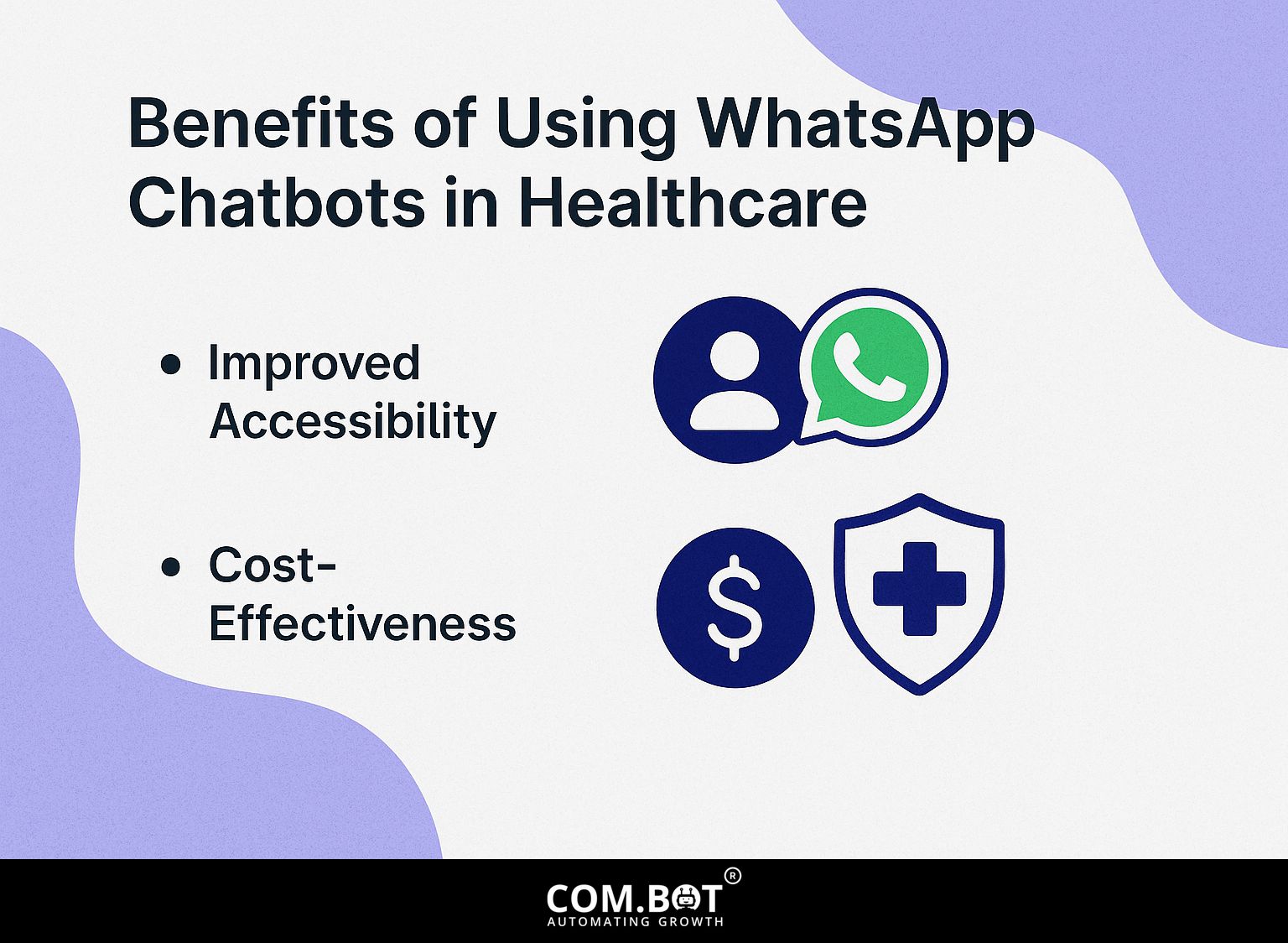
WhatsApp chatbots in healthcare make it simpler and cheaper for providers and patients to access services. This approach aligns with the principles outlined in our analysis of building intent-based chatbots, which highlight their benefits and wide-ranging applications in various sectors.
1. Improved Accessibility
WhatsApp chatbots give patients round-the-clock access to healthcare information and immediate help, removing obstacles to getting details.
Healthcare providers can use chatbots to make services much easier to access. Studies show that chatbots can respond in under a minute, whereas phone calls or emails can take hours.
Engagement metrics indicate a 50% increase in patient inquiries resolved at first contact when using chatbots. With the WhatsApp Business API, you can arrange appointments, send alerts, and respond to questions easily. This simplifies the experience for patients and makes them happier.
2. Cost-Effectiveness
Using WhatsApp chatbots can cut running costs by up to 30%, enabling healthcare systems to use their resources better.
For instance, a hospital in Toronto implemented a chatbot to handle appointment scheduling and patient inquiries, reducing staff workload and cutting down on call center expenses by 25%.
Tools like ManyChat or Chatfuel can be used to easily connect, allowing for automatic replies to common questions.
Sending automatic messages to remind people about follow-ups reduces the number of missed appointments and cuts costs by reducing wasted resources. Using chatbots improves patient interaction and makes operations run more smoothly.
Challenges and Limitations
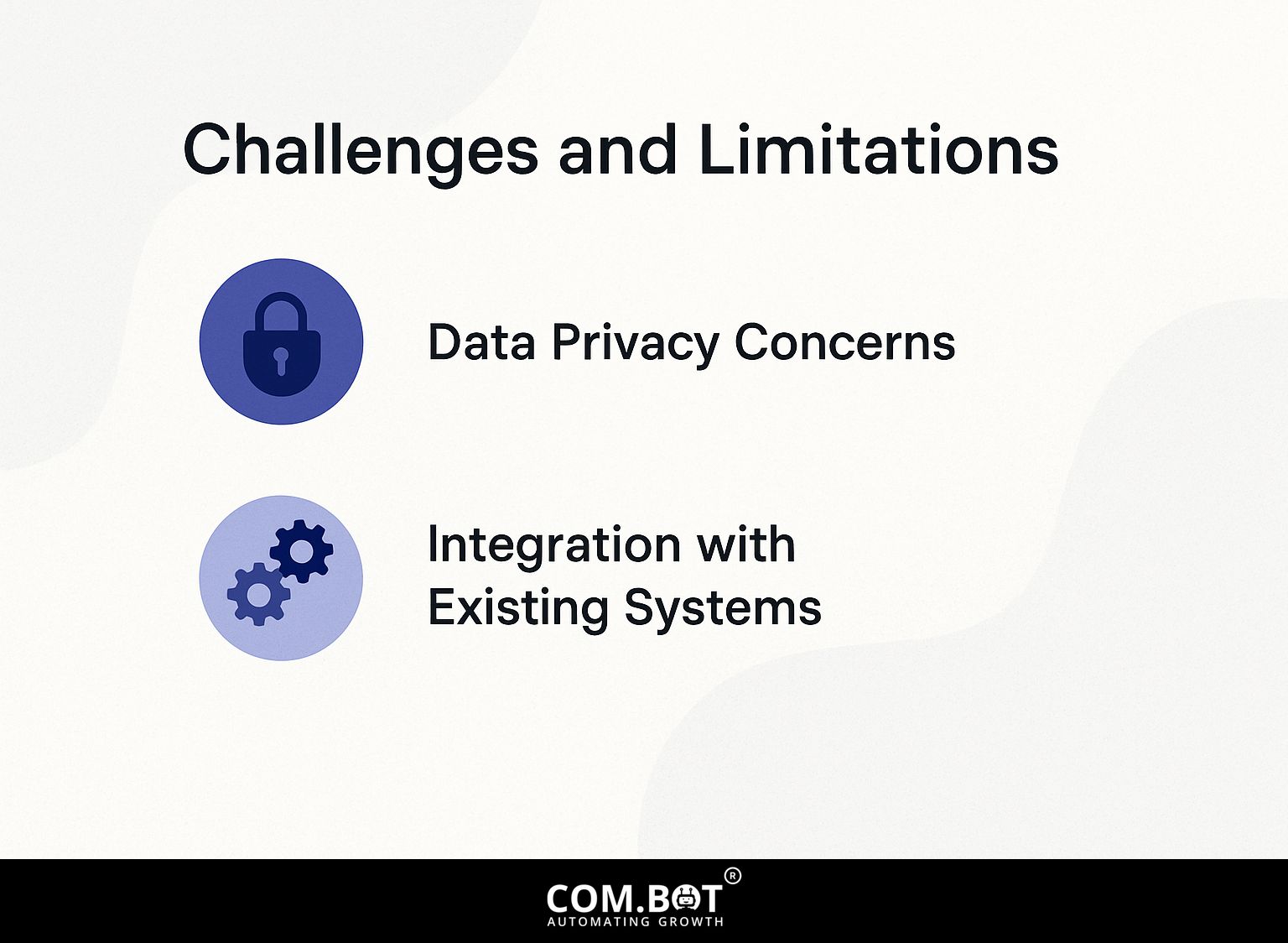
WhatsApp chatbots have benefits, but they also have issues, especially with data privacy and connecting with current healthcare systems.
1. Data Privacy Concerns
Data privacy concerns are paramount when using WhatsApp chatbots, as patient information must be secured to comply with regulations like HIPAA.
To follow the rules, use encryption tools like Signal or the end-to-end encryption features of WhatsApp. Use methods to hide patient identities in chatbot conversations.
Regularly audit your chatbot’s data access permissions, allowing only authorized personnel to access sensitive information. Educate your team on data handling best practices, emphasizing the importance of not sharing personal health information inappropriately.
By setting up a strong system for security and privacy, you can confidently use chatbots in healthcare environments.
2. Integration with Existing Systems
Successful integration of WhatsApp chatbots with existing healthcare systems can be challenging and may require significant resources.
To facilitate seamless integration, organizations should adopt a phased approach.
- Start by assessing current systems like Electronic Health Records (EHR) and identifying how they can interact with the chatbot. Tools such as API connectors (like Zapier or Integromat) can bridge the gap between platforms.
- Next, follow the rules by talking to legal experts to deal with data privacy matters related to healthcare.
- Test with a small group of users to collect their feedback and make any needed changes before rolling out completely.
Future Trends and Innovations
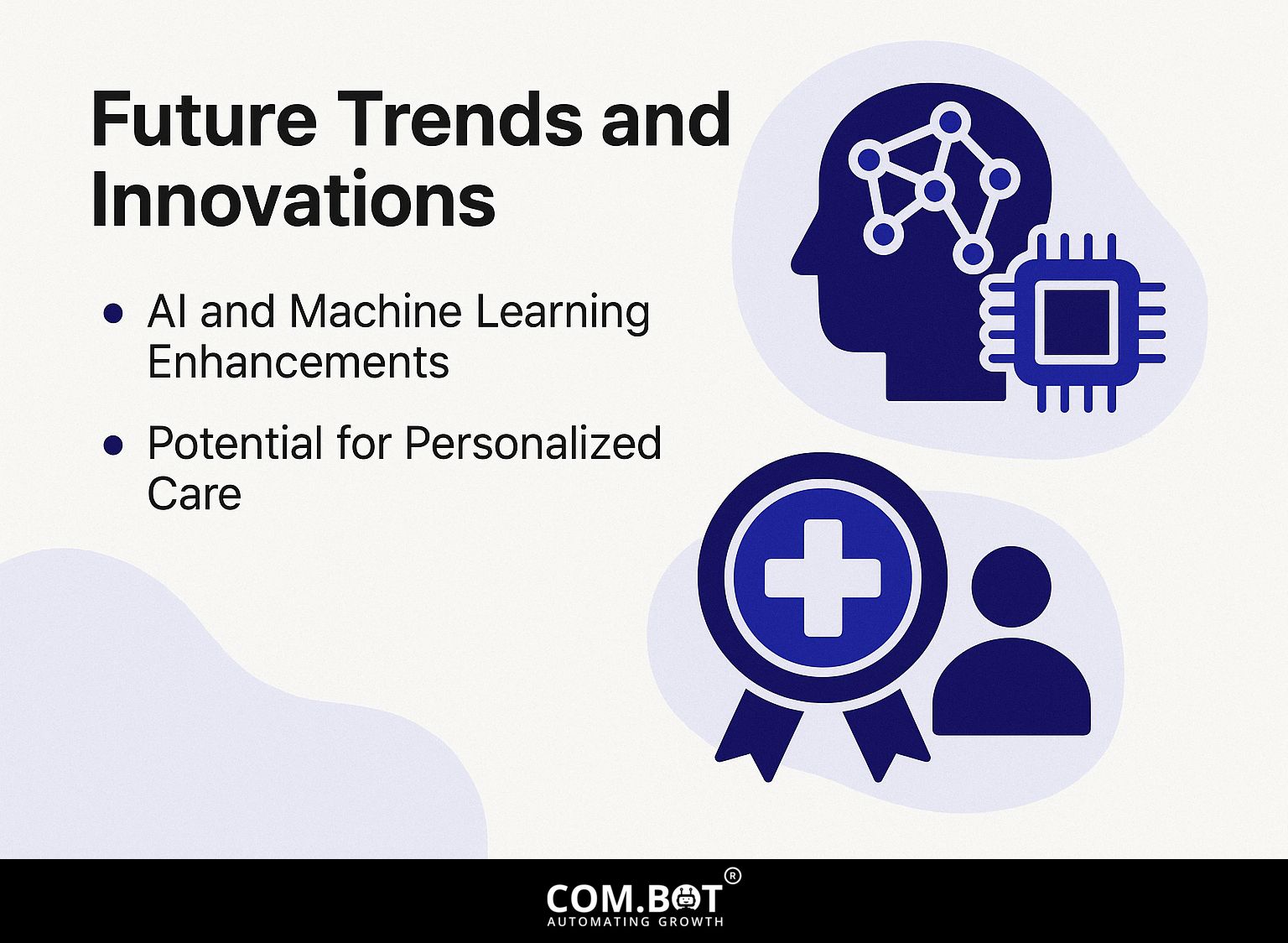
The potential of WhatsApp chatbots in healthcare is positive, as improvements in AI and machine learning allow for more individualized care options. For those looking to integrate such technology, how to use AI WhatsApp Bots effectively provides best practices that can enhance your approach.
1. AI and Machine Learning Enhancements
Advances in AI and machine learning are making chatbots smarter, enabling them to answer challenging patient questions more precisely. Innovations from companies like Tars and Yellow.ai exemplify this advancement.
Tars uses natural language processing to help patients have helpful chats, making it simple for them to find appointment times or medication details.
Yellow.ai uses sentiment analysis to allow its chatbots to recognize how patients are feeling and respond in a suitable manner. These technologies make it easier for patients to communicate and increase their satisfaction, showing how specific AI tools can make healthcare work better.
Organizations using these solutions often see response times drop by more than 30%, leading to a noticeable improvement in how patients feel about their care.
2. Potential for Personalized Care
WhatsApp chatbots are changing how patients interact with healthcare by providing care that fits each person’s specific health requirements. These chatbots use user details to provide personal health guidance, such as reminding patients to take their medications or giving lifestyle suggestions related to their health needs, like controlling diabetes or maintaining heart health.
For example, a chatbot can send daily tips about diet and exercise aligned with a user’s specific goals. They facilitate patient coordination by scheduling follow-up appointments or offering telehealth options.
You can use tools like Twilio or ManyChat to create these bots, which send messages quickly and appropriately, helping patients stay engaged and stick to care plans.
Frequently Asked Questions
1. What are WhatsApp chatbots and how are they being used in the healthcare industry?
WhatsApp chatbots are systems that automatically send messages using artificial intelligence and natural language processing to talk with people on WhatsApp, a widely-used messaging app. In healthcare, these chatbots help patients and healthcare professionals by offering support and information.
2. What are the applications of WhatsApp chatbots in healthcare?
The main uses of WhatsApp chatbots in healthcare are scheduling appointments, reminding patients to take their medication, checking symptoms, and educating patients. These chatbots can be used for customer service, answering common questions, and giving personalized suggestions based on someone’s medical history.
3. Can WhatsApp chatbots help with mental health support?
Yes, WhatsApp chatbots can offer mental health support by providing resources, information, and even virtual therapy sessions. These chatbots can also check in with patients regularly and provide coping techniques or calming exercises to help manage mental health issues.
4. Are there any successful case studies of WhatsApp chatbots in the healthcare industry?
Yes, there have been many successful examples of WhatsApp chatbots used in healthcare. For example, a chatbot named Ada Health was able to correctly identify health problems in a clinical trial, and another chatbot named Woebot helped users feel better mentally.
5. How do WhatsApp chatbots keep patient information private and safe?
WhatsApp chatbots in healthcare are designed to comply with strict privacy and security regulations, such as HIPAA in the United States. This means that all patient information is encrypted and stored securely, and the chatbot itself is designed to only share information with authorized users.
6. Can WhatsApp chatbots be used by healthcare professionals for remote patient monitoring?
Yes, WhatsApp chatbots can be used by healthcare professionals for remote patient monitoring. These chatbots can check in with patients regularly, collect data on their symptoms and health status, and alert healthcare professionals if any concerning changes occur. This can help to improve the efficiency and effectiveness of remote patient monitoring, especially in cases where a patient may not have regular access to a healthcare provider.
